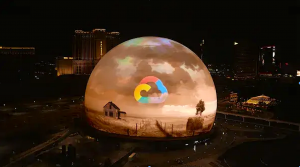Facebook Gets No Privacy in Court: New York Ruling
![]() A state ruling in New York emerged today, stating that content shared on Facebook, even the private stuff, can be used as evidence in a court of law. More interestingly is the disparity in rulings around the subject, as the state of California has a judge with different ideas. The Wall Street Journal breaks it down:
A state ruling in New York emerged today, stating that content shared on Facebook, even the private stuff, can be used as evidence in a court of law. More interestingly is the disparity in rulings around the subject, as the state of California has a judge with different ideas. The Wall Street Journal breaks it down:
“That ruling, based on the judge’s interpretation of 1986 electronic communications law, would seem to establish a narrow definition of privacy for social-networking users in New York. In California, on the other hand, a judge interpreted the same statute to confer privacy on material posted to Facebook and MySpace. The rulings in each case only apply to the areas covered by their courts, unlike rulings made in federal appeals court or at the Supreme Court, which typically apply more broadly.”
The article goes on to cite one situation in which photos were used in a court case a woman brought against a chair manufacturer. The woman’s own photos, posted on Facebook, were used against her in the court of law.
This isn’t the first time Facebook content has found its way to court. The social network is cited in divorce cases around the world–the UK divorce court sees Facebook evidence in 1 out of every 5 cases. Beyond extramarital affairs, Facebook content has been used to corroborate relationships and whereabouts. But the matter of privacy is of particular concern as the legal system moves deeper into social media–or is it the other way around?
While Facebook and its privacy claims initially resisted such legal measures, the network has had to succumb to the court as it grew larger and more relevant to civil matters. Twitter can also be used as evidence in some international courts–the microblogging network was faster to cooperate in that regard, with archives in the Library of Congress.
A message from John Furrier, co-founder of SiliconANGLE:
Your vote of support is important to us and it helps us keep the content FREE.
One click below supports our mission to provide free, deep, and relevant content.
Join our community on YouTube
Join the community that includes more than 15,000 #CubeAlumni experts, including Amazon.com CEO Andy Jassy, Dell Technologies founder and CEO Michael Dell, Intel CEO Pat Gelsinger, and many more luminaries and experts.
THANK YOU















